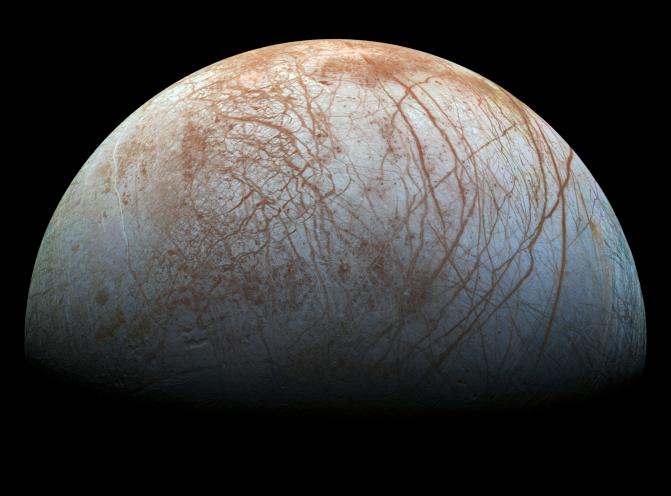Could an icy moon orbiting Jupiter hold secrets to life beyond Earth? The NASA Europa Clipper is on a mission to find out. The Europa Clipper, which lifted off from Cape Canaveral on Monday, October 14, was sent to explore Europa, one of Jupiter’s moons with an enormous ocean that scientists believe may have conditions to support life.
“The $5.2 billion mission began as a concept in 2013, but the road to launch hasn’t been without challenges,” according to Ashley Strickland, a writer for CNN Science. Through their struggles, scientists have been confident the exploration will be worth it as it will allow humans the chance to explore an ocean world unlike anything we have ever seen.
The first sighting of Europa was during the NASA Galileo mission in the 1990s, where they found Europa to have an enormous salty ocean with more water than all of Earth’s oceans combined according to Deseret News. Since then, scientists and astronomers alike have been working tirelessly to develop a spacecraft that can support the instruments needed to investigate Europa’s potential to sustain life.
Gretchen McCartney, writing for NASA, shared that the spacecraft is equipped with nine science instruments, a gravity experiment, spectrometers, and cameras in order to assess the moon’s interior, composition, and geology as well as capture images and create maps of the moon’s surface.
In their article, CNN shared that “astronomers believe that the ingredients for life, including water, energy and the right chemistry, may already exist on Europa. The spacecraft could gather evidence to find out whether those ingredients coexist in a way that makes the moon’s environment potentially habitable.” Understanding Europa’s ocean environment is crucial in expanding our knowledge of life’s possibilities beyond Earth and redefining our understanding of the cosmos.
When interviewing Ms. Rafie, a science teacher on campus about why it is important to study ocean planets like Europa, she explained “it can be a place to grow life and a source of energy for the human race and survive later on.” Ms. Rafie also added, “If we do not know anything about our universe, then our race will go extinct because we cannot improve our lifestyle.” The fate of our existence relies on our ability to adapt and evolve. Knowledge of outer space could be the key to understanding life outside of planet Earth.
Jordan Evans, project manager with NASA’s Jet Propulsion Laboratory, said in a statement: “This launch isn’t just the next chapter in our exploration of the solar system; it’s a leap toward uncovering the mysteries of another ocean world, driven by our shared curiosity and continued search to answer the question, Are we alone?”
There are still many unanswered questions about our universe waiting to be answered. With the clipper slowly approaching Europa, we may discover something new– or someone new.






















































